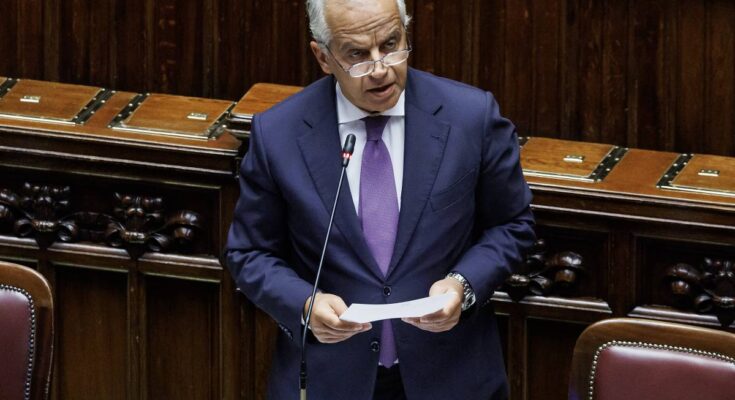If the opposition tried to shift the center of political gravity to the realm of legality, and accused the center-right of not doing enough in terms of public order, Interior Minister Matteo Piantedosi chose to respond with numbers. Data that contradicts the narrative of an increasingly insecure country.
Speaking at ANCI’s forty-second national assembly, the owner of the Ministry of Home Affairs captured a trend and claimed the work was already done, underlining how “compared to ten years ago we recorded an overall reduction in crime of 11%”. And looking at the latest annual cycle, he added that “in the first eight months of 2025 there was a further decline of 8% compared to the same period in 2024”.
The Minister focused on the value of these figures, and defined them as “a demonstration that safety is not a slogan but an everyday commitment”. Piantedosi explained that the efforts made in recent years have focused on the presence of law enforcement in territorial areas, on prevention and renewed coordination with mayors, emphasizing the fact that “the perception of insecurity is often greater than the crime itself” and therefore “a collective assumption of institutional and political responsibility is required”.
Therefore, there is an option to present such data as a barrier to the narrative of the alleged collapse of urban security: “We cannot allow public debate to be conditioned by alarmist readings”, he said.
The clarification comes in the midst of an increasingly tense political confrontation. In fact, for weeks, the security issue has been a favorite battleground for the opposition. The diverse front, from reformists to Cinquestelle, bypassed many local Democratic Party officials, concerned that the party was not appearing sharp enough on a topic that was once again on the public agenda.
“The left must not leave security issues to the right”, wrote European Parliament member Stefano Bonaccini, attacking the executive for “less safe cities” and for the resources taken from Municipalities in integration policies. Adding to the criticism was the change in tone of Giuseppe Conte, who was determined to speak to a wider electorate: the M5S leader blamed “theft, robbery and understaffing”, asked to implement ex officio prosecutions for crimes such as robbery, and to divert “billions of money wasted on Albania into funds for the safety of the Municipality”.
The fuse has been lit by Genoa Mayor Silvia Salis, who accused the Meloni government of not allocating enough funds to the police, considering the 12 thousand units lost by the local police in thirteen years. The Prime Minister responded by illustrating in a lengthy post the steps taken by the executive “to correct weaknesses that have existed for decades”.
It was in this context that Piantedosi chose the counterattack path.
And looking at the next budget law, he announced increased funding for urban security, new intervention pathways for more targeted management of nightlife areas, taser testing for local police, redevelopment of degraded areas and identification of properties to house vulnerable communities involved in evictions, reiterating that security remains the government’s priority. “These are issues that cannot ignore the fundamental contribution of municipal governments.”



